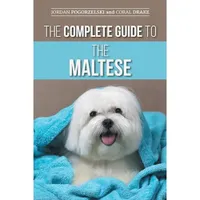Maltese dogs are an ancient breed that has been around for thousands of years – and their popularity isn’t slowing down
This toy breed was once a favourite of ancient Romans and Greeks – but why is the Maltese so popular?
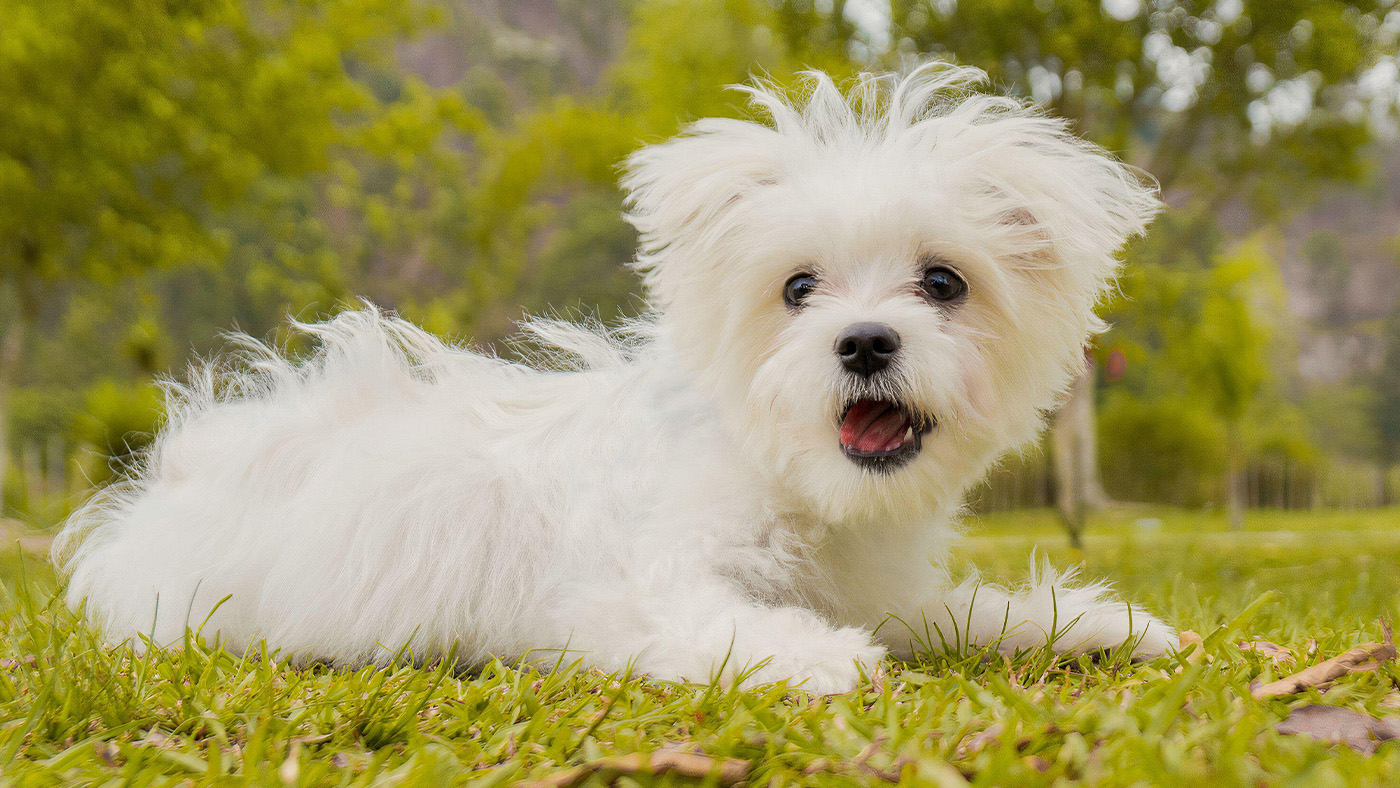
Get the best advice, tips and top tech for your beloved Pets
You are now subscribed
Your newsletter sign-up was successful
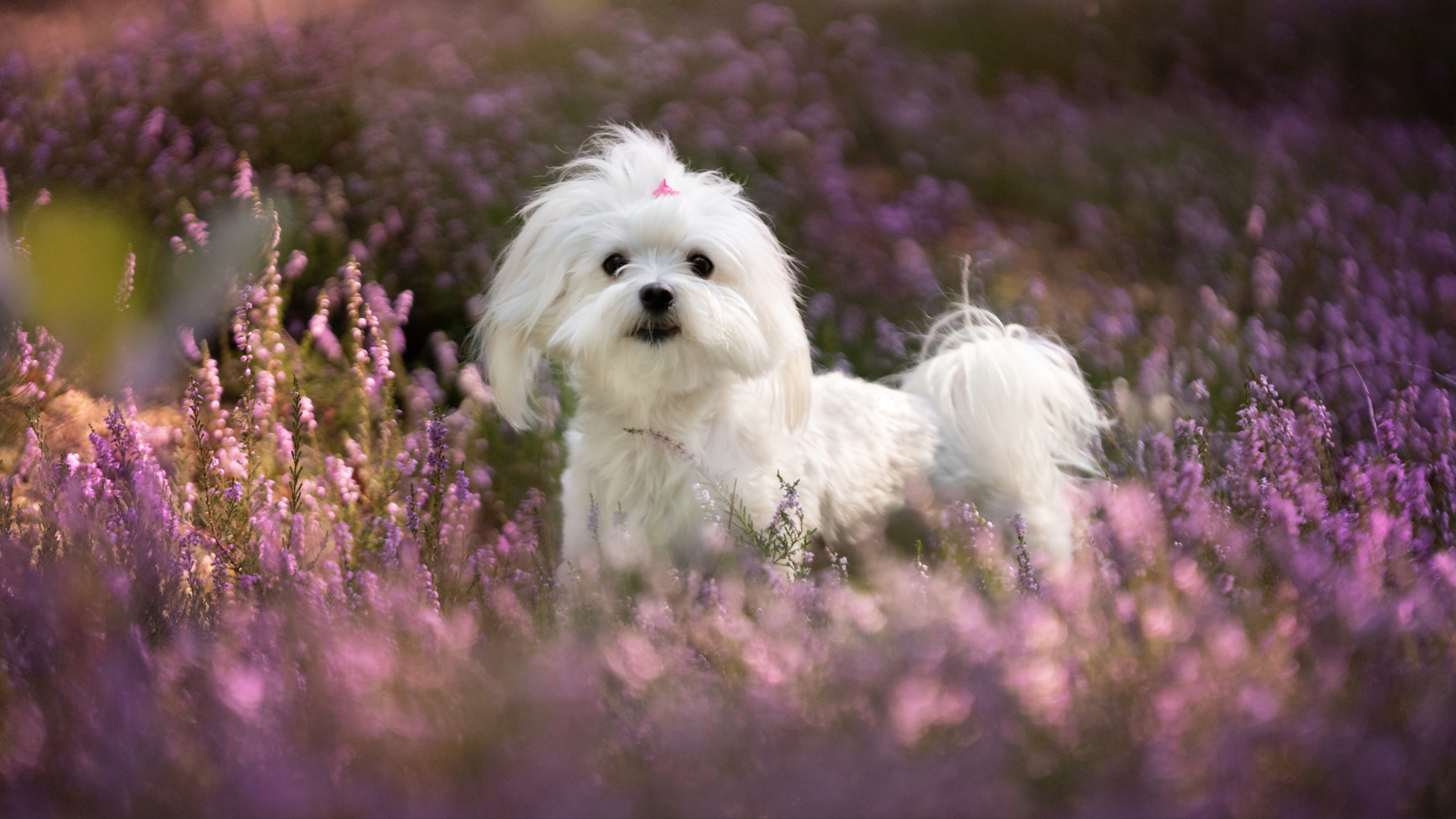
Life expectancy: 12 to 15 years
Size: 7-10 inches (male); 7-9-inches (female)
Coat: Silky, white, long, straight
Temperament: Loyal, gentle, lively, affectionate, playful
Exercise needs: Up to an hour daily
Origin/native country: Malta
Although Maltese dogs are intrinsically linked with the Mediterranean island of Malta, it’s not known if they actually originated there – they’re said to have been imported by the Phoenicians (people from part of what is now Lebanon). What we do know, though, is this breed is small and elegant, bred to be a human companion and one of the most fiercely loyal dog breeds as a result.
Responsive to the mood of owners and with a playful nature, it’s easy to fall in love with this little pup. And, for the most part, they’re not likely to cause you many problems, if any. They’ll make friends with just about anyone and they’ll live in the smallest of apartments. But what makes them tick? Expert vet Dr Rebecca MacMillan helps us to find out.
Does a Maltese dog need a lot of exercise?
While Maltese dogs are energetic and lively, they don’t require vigorous daily exercise.
“Maltese have moderate exercise needs and will need approximately 30–60 minutes of walking and play each day,” says Dr MacMillan.
They’re more than happy just being around people and they’ll generally exercise themselves. You can help by having the best dog toys to hand – Maltese enjoy play sessions and they like to learn new tricks.
Don’t allow them near cold water, though, as this is one of those dog breeds that can’t swim and they won’t enjoy the change in temperature.
Are Maltese easy to train?
Maltese dogs are intelligent and they are quick to learn – give them some tricks to perform and you’ll be surprised at how well they respond.
Get the best advice, tips and top tech for your beloved Pets
“They are also very eager to please, which makes them highly trainable,” Dr MacMillan says. “Maltese can definitely take part in agility and obedience classes. These activities are a good source of mental stimulation as well as physical exercise.”
They can, however, be a little manipulative and set in their ways. They’ve learned how to get their own way with owners and this has come from being in such close contact with humans.
“These dogs were bred for companionship and so they like to stay close to their owners,” Dr MacMillan explains.
As such, you need to be strong and consistent.
“Owners should keep training sessions positive and short to keep their dogs motivated,” Dr MacMillan adds.
Do Maltese make good family pets?
Given their placid, gentle nature, these lapdogs are one of the best family dog breeds. “As a companion animal, the Maltese was bred to be even-tempered and to enjoy human company,” Dr MacMillan says.
You’ll find they’re happy living in practically any environment – they’re one of the best dogs for apartment living, for example. They’re among the best dogs for seniors and they’re also among the best dogs for companionship. Indeed, they’re so good around humans, they are considered to be one of the best dogs for emotional support as well.
To that end, they’ll pose no problems for households with kids although you do have to ensure that young children don’t play too rough because Maltese can be easily hurt.
In that sense, you may be better only introducing this breed into a household with older children. Just be aware that this breed suffers from separation anxiety, such are the close bonds they form and that’s something you will have to work on.
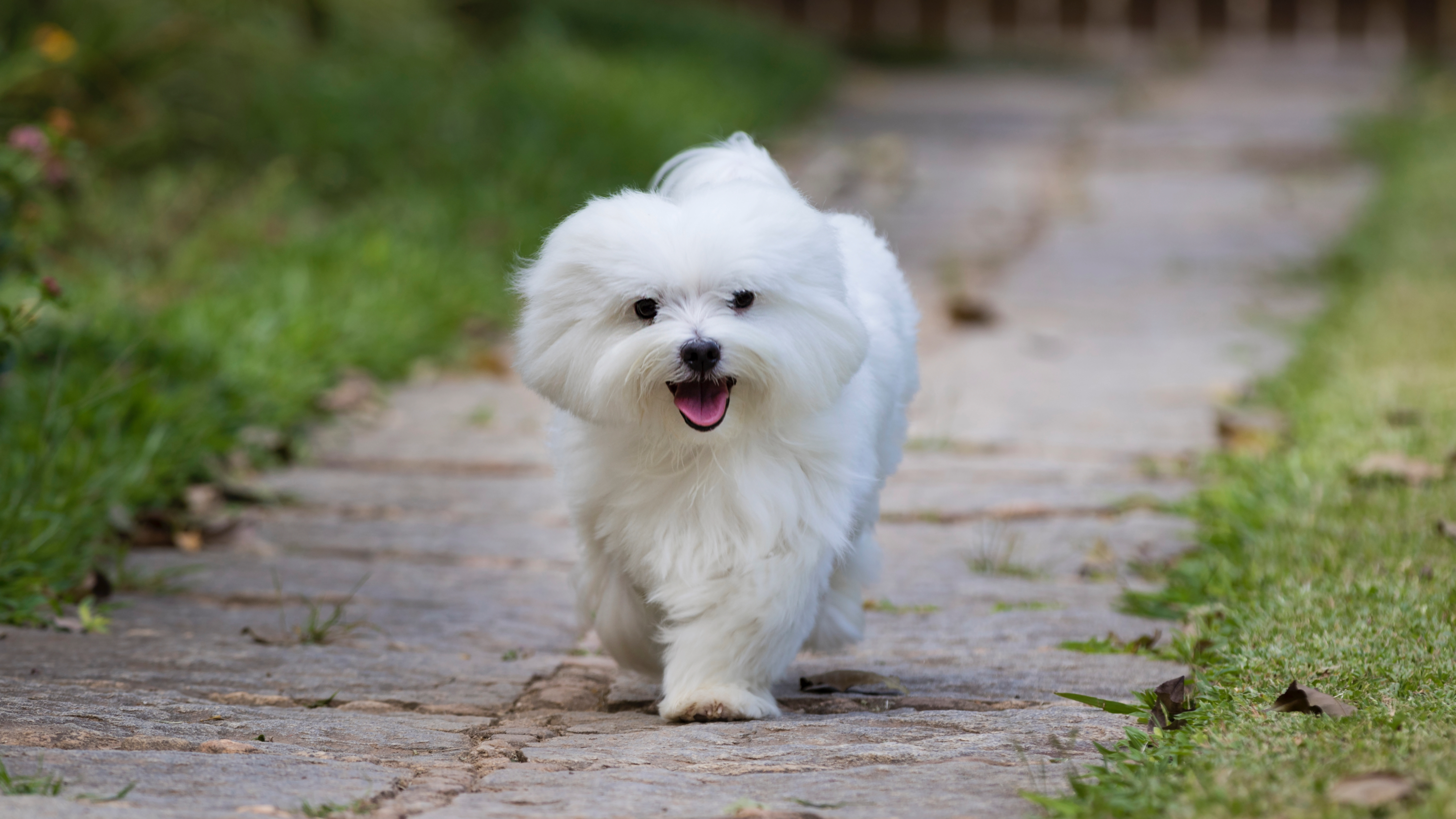
Do Maltese make for good guard dogs?
The bond between Maltese and their human owners is strong but it only goes so far due to their size.
“Maltese can make good watchdogs as they are generally alert and will be vocal if a would-be intruder approaches,” says Dr MacMillan. “However, don’t expect them to make a particularly good guard dog if challenged.”
Wisdom Panel Breed Discovery DNA Kit | Amazon
Not sure exactly what breed your dog is? This kit screens for 365+ breeds – because knowing every detail about your dog helps you understand how best to care for them.
Do Maltese need a lot of grooming?
In general, Maltese are a low-maintenance breed, but the exact grooming needs of Maltese dogs will depend on what length you wish to keep their coat.
“If you prefer a longer length, you will need to brush your dog daily to prevent tangles and you will still need to take a trip to the groomer every so often for a trim to keep things neat,” Dr MacMillan explains.
“But if you prefer a shorter length – and some owners will have their dogs regularly clipped short – you might only need to brush them once or twice a week. You can trim and clip your dogs at home but always speak to a professional if you need help.”
Since the Maltese has pure white fur, it can need a bit of maintenance to keep it looking at its best.
“This may mean regular baths with gentle, dog-whitening shampoo,” Dr MacMillan adds. You should also keep their eyes clean and ensure the nails are trimmed while also regularly brushing their teeth.
But, thankfully, Maltese are among the small dog breeds that don’t shed much.
“This makes them less likely to trigger reactions in those allergic to dogs,” Dr MacMillan says. “However, allergies are caused by proteins in the dog’s dander, saliva, and urine so this means no dog is truly hypoallergenic and reactions can still occur.”
Maltese health problems
The Maltese is a generally healthy breed – these dogs are among the longest living breeds – but they can suffer from a heart problem known as patent ductus arteriosus (PDA).
“This is an inherited heart condition that can cause stunted growth, exercise intolerance and breathing difficulties. It may need to be repaired surgically at an early age,” Dr MacMillan says.
Like many small breed dogs, the Maltese is also prone to patellar luxation.
“Affected dogs have one or both kneecaps that slide out of position causing varying degrees of limping, pain and the early onset of osteoarthritis,” Dr MacMillan adds.
“Dental disease is also very common in small dogs like the Maltese. Regular teeth brushing from an early age is essential to prevent tartar build up, gum inflammation and tooth loss.
Should I get a Maltese?
Maltese dogs are undoubtedly one of the cutest dog breeds and they have many positive traits – they’re adaptable, intelligent, affectionate and playful and they love being close to their owners.
You won’t need to spend lots of time exercising this breed and you can reduce the amount of time spent grooming them. They also live for a long time. If you’re active and want a dog to take on your adventures, however, or if you’re away from home a lot then you may not find them particularly ideal.
Complete Guide to the Maltese | Amazon
With insight from six top Maltese breeds, this book shares everything you need to know to raise a happy and healthy Maltese from puppy to old age.
Read next: Maltipoo breed profile (a Maltese crossed with a poodle!). Or check out the comparison between a toy poodle vs maltipoo
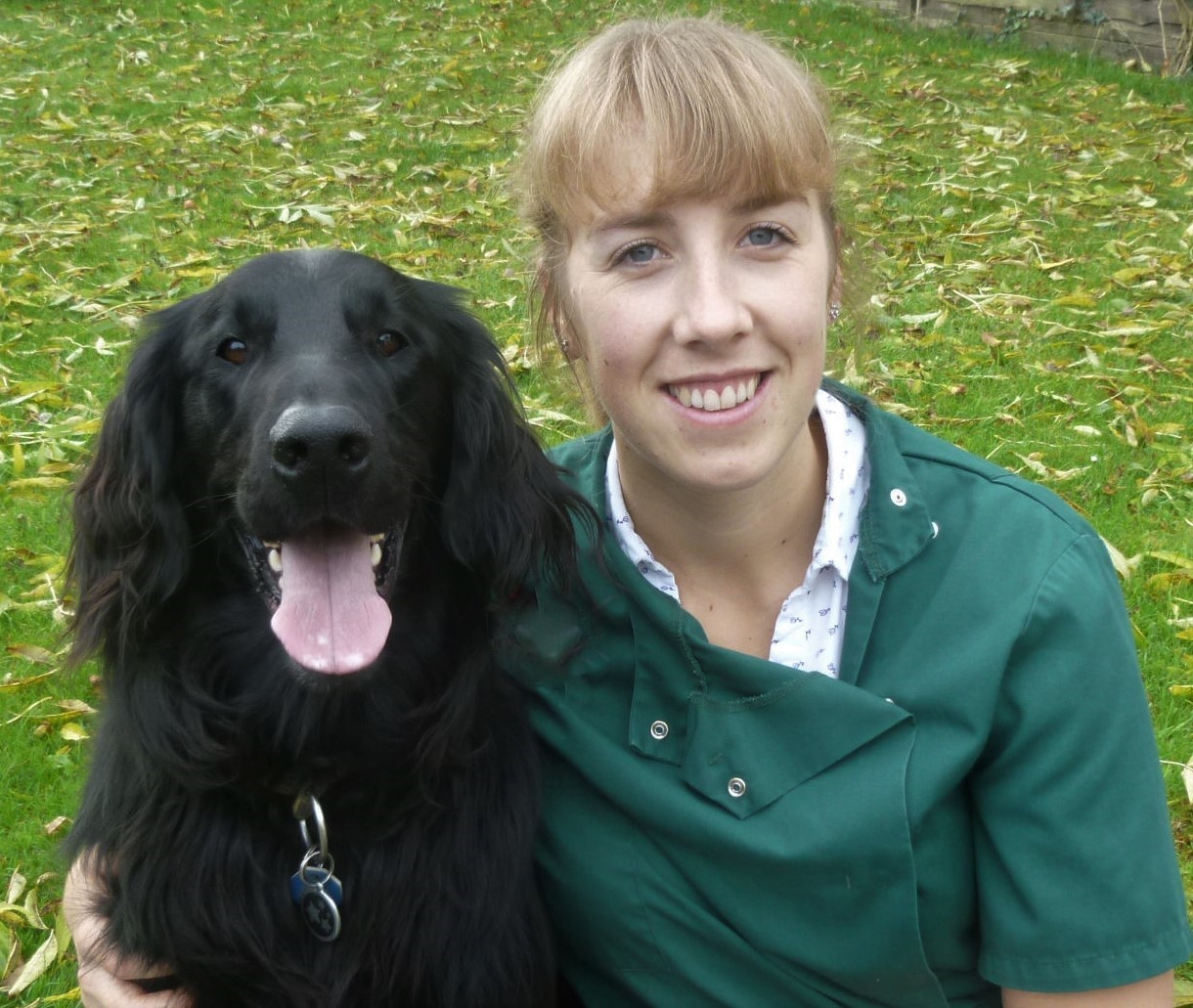
Rebecca is a veterinary surgeon who graduated in 2009 from the Royal Veterinary College in London. She has a wealth of experience in first opinion small animal practice, having done a mixture of day-to-day routine work, on-call emergency duties and managerial roles over the years. Rebecca enjoys medicine in particular and she is proud to have recently achieved a BSAVA postgraduate certificate in small animal medicine (with commendation).
She writes on various feline and canine topics, including behavior, nutrition, and health. Outside of work and writing she enjoys walking her own dog, spending time with her young family and baking!
Edited by Georgia Guerin.
This feature was last updated in April 2025.

David Crookes has been a journalist for almost 30 years and he has written for a host of magazines, newspapers, websites and books including the World of Animals Annual, BBC Earth, Live Science, The Independent and Tom’s Guide.
Born in England, he lives with two cats but he’s also keenly interested in the differences between the huge number of dog breeds – in fact, you can read many of his breed guides that he’s written in collaboration with vets here on PetsRadar.
With a lifelong passion for technology, too, he’s always on the lookout for useful devices that will allow people to keep their pets happier and healthier, and provide them more time to spend together.
David has a degree from Durham University, as well as postgraduate diploma in journalism from the University of Central Lancashire.

